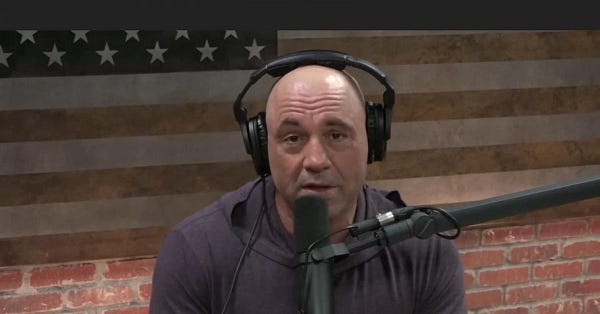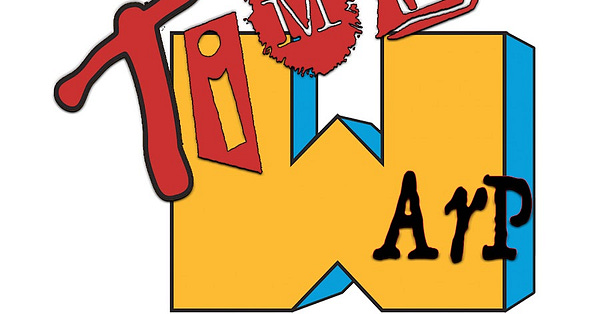Improving Internet Distractions
All the links: Context Collapse #99
Hey there. We’ve got a special Thursday surprise: An all-links edition of the newsletter.

And thank you for entrusting me with your internet browsing habits. I promise to make it all amazing.
New Futures:
What were all those UFO sightings about? The U.S. government says we don’t really know, but they ain’t ours.


A hell of a headline from the NYT’s Tariq Panja: Hunting trips, sex and cash: How Russia influenced Biathalon’s leader.
What happens when Chinese government-linked companies become part of America’s health care system.
Anheuser-Busch understands Americans and is offering every American over 21 a free beer on July 4th if the country meets the U.S. government’s goal to have 70% of Americans at least partially vaccinated against COVID by that date. Participants don’t have to supply proof of vaccination and have to submit marketing info for their free beer.
Making sense of how politics became pro wrestling.
Advertising/Marketing/PR:
Robert G. Reeve explains how brands stalk you online (Twitter thread):

…And, yes, there’s a Costco influencer social media subculture.
A Canadian PR agency apparently created a fake fact-checking site and their own pro-Indian government news site in order to influence Indian politics:
The firm used India Vs. Disinformation to amplify and aggregate pro-government content while simultaneously publishing “fact checks” targeting the government’s political opponents, as well as local and international media outlets for their critical coverage of the current administration. While the communications firm never disguised the fact that it ran the website, its use of fact-checking and disinformation-monitoring rhetorical tropes gives casual readers the impression that it is an independent news source.
Droga5’s Simon Morris and David Kolbusz spoke with AdWeek’s Stephen Lepitak about how they worked on the Amazon account during the pandemic:
“The understanding that we can make stuff and create messaging in a completely different way, in a completely different timeframe to normal is something that we won’t go back from,” Morris said.
Brian Morrissey on the problems facing in-house publisher content studios. (And, speaking of that, The Atlantic’s agency Atlantic 57 is rebranding to Long Dash.)
Here’s an awesome database of self-promotional posts from businesses on Reddit that actually work.
Quartz’s weekly obsession is Cookies. The advertising kind.
Media:
Tech reviewer YouTube star Marques Brownlee on the business of influence:
I think a lot of people, when they imagine a YouTube channel, don’t imagine very much work behind it. We put out over 120 videos last year. So it’s a team of five currently in the studio, which is a 7,000-square-foot empty box that we filled up with video gear. It’s me, Andrew, Vinh, Brandon, and Michael. That’s a combination of cinematographers, set designers, motion graphics specialists, and myself.
Roy Peter Clark argues there’s no such thing as a former journalist:
Off goes reporter Sam to law school. And off goes reporter Sally to work in the public information office of the local college. And off goes reporter Buffy to become a vampire slayer. The discourse on Twitter about these moves is full of regret, and, in a way, regrettable. It is as if the journalist has abandoned a priesthood, is no longer a member of the tribe, has gone over to the Dark Side. Often, that judgment is expressed, half-jokingly, by the journalist who is about to walk out the door.
NPR released a guide to gender identity terms that looks like it will serve as a defacto style guide in the future.
Kevin Drum on why blog audiences declined in the 2010s:
RSS broadcasts content directly to users. There's no way to monetize it, and it cannibalizes users away from platforms that want to be your sole hub for news aggregation. Google wanted its users on Google+, or at the very least finding the news via search, which generated ad revenue. Facebook wanted you to read a news feed full of ads within their walled garden. And Twitter wanted to be the place where news broke first—but only if you were actually on Twitter.
After Medium CEO (and Twitter co-founder) Ev Williams wrote a memo about corporate culture, employees keep resigning.
Matthew Sheffield on Joe Rogan and “pseudo expertise.”


Tech:
Ifeoma Ozoma argues NDAs stop tech industry employees from speaking out about harassment, discrimination and assault.
Jefferson Graham says Google Photos is pulling a bait-and-switch but they have the best photo storage service, so problem. (Also, check out his new TV series on Tubi!)
Congress is investigating Spotify’s Discovery Mode for sorta-kinda-maybe payola resembling behavior?
Fun:
1990s public access TV nostalgia.


Novelist Ayelet Waldman and actor Jenette “Vasquez in Aliens” Goldstein, who now runs a bra shop, having the Yelp interaction of all Yelp interactions.
Ryan McEntush on the pirate republic:
Nassau blossomed into a thriving community of societal outcasts. Beyond dejected sailors, crews were made up of escaped slaves, runaway indentured servants, and otherwise downtrodden members of society. To them, piracy was both an opportunity for a better life and revenge against the elite who had tormented them for generations.
Learning about the “Tartarian Empire” conspiracy theory, which Bloomberg calls the “Qanon of architecture,” which claims many of the world’s modern buildings involve an empire that’s been erased from the history books:
The overall premise is an alternative history. A vast, technologically advanced “Tartarian” empire, emanating from north-central Asia or thereabouts, either influenced or built vast cities and infrastructure all over the world. (Tartaria, or Tartary, though never a coherent empire, was indeed a general term for north-central Asia.) Either via a sudden cataclysm or a steady antagonistic decline — and perhaps as recently as 100 years ago — Tartaria fell. Its great buildings were buried, and its history was erased. After this “great reset,” the few surviving examples of Tartarian architecture were falsely recast as the work of contemporary builders who could never have executed buildings of such grace and beauty, and subjected them to clumsy alterations.
Take a look at how the Black Death led to British pub culture.
Things I’ve Enjoyed Lately:
Anne Helen Petersen’s arguement that just because your early career was hell doesn’t mean others’ have to be:
Total accessibility, emailing on weekends, responding at all hours on Slack, not taking vacations — all of those things might make you seem like an ideal worker, but it’s ultimately not good for the employee, it’s not good for retention, and it’s not good for the company. It has to be continuously, constructively, and actively discouraged.
Kolby Hatch’s Twitter thread on newsletter design:

Jane Friedman’s Facebook Live videos on running a writing business.
The Pew Research Center asks Biden and Trump voters what they want the other candidate’s supporters to know about them.
Legendary chef Rick Bayless on running a restaurant group during the pandemic:
As most of us, I’m a creature of habit. I find a settling comfort in tackling the same sorts of activities in a predictable order and at an established time each day. But a national disaster was unfolding and pulling my well-worn patterns out from under me. All my meetings were cancelled, all my projects were put on hold. I didn’t know what to do or if there was something to do or when might be the best time to start. In the late afternoon, I found myself sitting perfectly still in our restaurant’s little library, staring straight ahead as the minutes ticked by. To most anyone, it would have looked like I was meditating. For me, it felt more like paralysis.
Tim Harford on can you really change who you are?:
From the inside, it’s hard to grasp the possibility that we might change over the years as we leave school, move house, acquire hobbies and friends, get jobs, become parents, and experience love and loss. Yet we do and we will.
Making sense of whether Chicago is culturally midwestern or not.
Eater’s special edition on gas station food across the U.S.A.:


What I’m Working On These Days:
I’m helping clients put together case studies, write white papers, and launch a podcast series.
I have availability to take on new projects starting in July; email to learn more.






Thanks for the mention Neal!